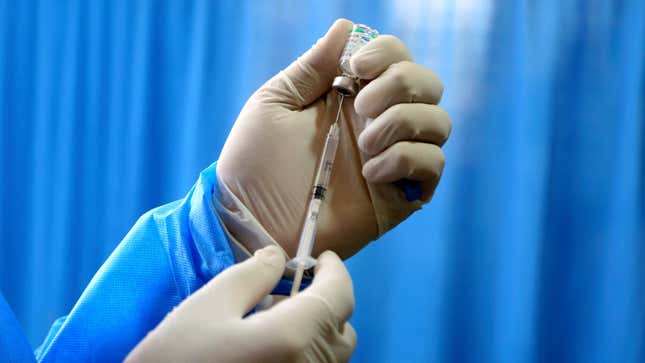Without Support From Wealthy Nations, People In Poorer Nations May Not Be Vaccinated Until 2023
Latest

As the rate of vaccine distribution in the United States continues to improve, a growing group of public health experts, advocacy organizations, and policymakers are calling for wealthy countries to work towards improving vaccine distribution to low-income nations. Rich and middle-income countries have received approximately 90% of the almost 400 million vaccines that have been delivered so far—and current projections don’t show that disparity ending any time soon, with much of Africa and sections of South America and Asia not projected to have widely vaccinated their population until 2023.
Not only does this massive disparity leave billions of people across the world at the mercy of the coronavirus for an indefinite amount of time, likely leading to millions more getting sick and dying, it also promises to weaken the effectiveness of any coronavirus immunity developed in wealthier countries. What does it matter if the U.S. has achieved herd immunity if, once people start widely traveling internationally again they are exposed to potentially vaccine-resistant covid-19 variants in other countries?
-

-

-

-

-

-

-

-

-

-

-

-

-

-

-

-

-

-

-

-

-

-

-

-

-

-

-

-

-

-

-

-

-

-

-

-

-

-

-

-








































